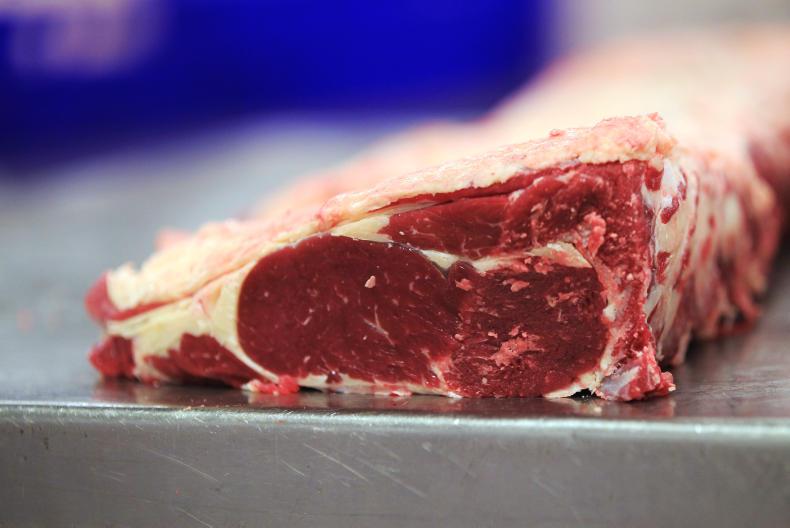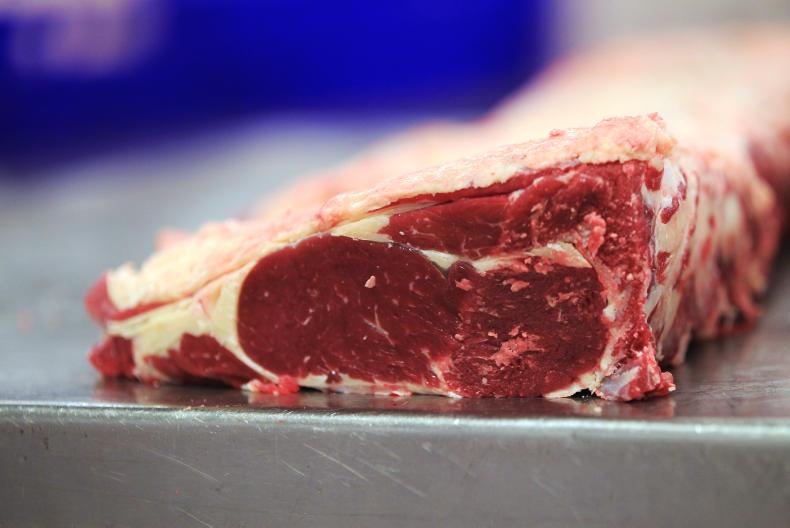The pound sterling has fallen to its lowest value against the euro since November 2014. On Monday it fell to £0.80, continuing the downward spiral begun in January this year when comments made by Mark Cagney, governor of the Bank of England, sent the currency to a 12-month low against the euro.
The governor ruled out a rise in UK interest rates in 2016, citing weak economic growth in the UK and the continuing turmoil in financial markets.
Following this, the announcement of the referendum date for Britain's possible exit from the EU resulted in the pound sterling suffering its biggest one-day loss since 2010.
Now it has fallen to £0.80 for the first time since November 2014.
This weakening of the sterling in tandem with a strengthening of the euro signals serious difficulties for Irish exports with any weakening of the sterling resulting in factories in the UK having to pay a higher price for Irish beef.
It was a different story in 2015 when the weakness of the euro against sterling served to boost the competitiveness of Irish exports on UK shelves. Irish food and drink exports to the UK grew by 7% in 2015.
Moreover, UK beef exports recorded a drop of 10.6% in 2015 from the previous year, driven by the strength of sterling.
Current prices
The prices quoted or paid to IFA members by Irish factories for the week ending 30 March 2016 were €3.90/kg to €3.95/kg for steer base, €4/kg to €4.10/kg for heifers, €3.70 to €3.90/kg for young bulls, €3/kg to €3.60/kg for cows and an in-spec bonus of 12c/kg above base price.
Read more
Brexit uncertainty dominates London meat forum
The pound sterling has fallen to its lowest value against the euro since November 2014. On Monday it fell to £0.80, continuing the downward spiral begun in January this year when comments made by Mark Cagney, governor of the Bank of England, sent the currency to a 12-month low against the euro.
The governor ruled out a rise in UK interest rates in 2016, citing weak economic growth in the UK and the continuing turmoil in financial markets.
Following this, the announcement of the referendum date for Britain's possible exit from the EU resulted in the pound sterling suffering its biggest one-day loss since 2010.
Now it has fallen to £0.80 for the first time since November 2014.
This weakening of the sterling in tandem with a strengthening of the euro signals serious difficulties for Irish exports with any weakening of the sterling resulting in factories in the UK having to pay a higher price for Irish beef.
It was a different story in 2015 when the weakness of the euro against sterling served to boost the competitiveness of Irish exports on UK shelves. Irish food and drink exports to the UK grew by 7% in 2015.
Moreover, UK beef exports recorded a drop of 10.6% in 2015 from the previous year, driven by the strength of sterling.
Current prices
The prices quoted or paid to IFA members by Irish factories for the week ending 30 March 2016 were €3.90/kg to €3.95/kg for steer base, €4/kg to €4.10/kg for heifers, €3.70 to €3.90/kg for young bulls, €3/kg to €3.60/kg for cows and an in-spec bonus of 12c/kg above base price.
Read more
Brexit uncertainty dominates London meat forum










SHARING OPTIONS